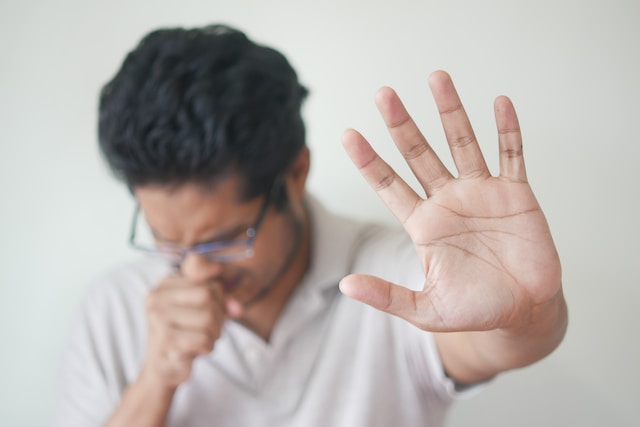Table of Contents
| Sr# | Headings |
|---|---|
| 1 | Introduction |
| 2 | Understanding Allergies |
| 3 | Research Your Destination |
| 4 | Packing Smart |
| 5 | Managing Food Allergies |
| 6 | Coping with Environmental Allergens |
| 7 | Staying Safe in Accommodations |
| 8 | Preparing for Emergencies |
| 9 | Enjoying Local Cuisine |
| 10 | Communicating Your Allergies |
| 11 | Traveling with Medications |
| 12 | Air Travel Tips for Allergy Sufferers |
| 13 | Exploring Nature with Allergies |
| 14 | Allergy-Friendly Travel Apps |
| 15 | Conclusion |
1. Introduction
Traveling can be an exhilarating experience, providing unforgettable memories and cultural insights. However, for those with allergies, it can also present unique challenges. From unknown food ingredients to unfamiliar environmental triggers, it’s crucial to be well-prepared to ensure a safe and enjoyable journey. In this article, we’ll guide you through essential precautions and preparations, allowing you to embark on your adventures confidently.
2. Understanding Allergies
Before you set off on your travels, it’s essential to have a clear understanding of your allergies. Identify the specific allergens that affect you, such as certain foods, pollen, dust mites, or pet dander. Consult with your allergist to comprehend potential reactions and learn how to manage them effectively.
3. Research Your Destination
Knowledge is your best ally when traveling with allergies. Research your destination thoroughly. Learn about common local allergens, medical facilities, and emergency services. Understanding the climate and environmental conditions will help you anticipate potential triggers and take appropriate precautions.
4. Packing Smart
Packing smart can make a significant difference in managing your allergies during your trip. Here’s what you should consider:
- Medication Kit: Pack your prescribed medications, antihistamines, and epinephrine auto-injectors (if required).
- Allergy Cards: Carry allergy cards in the local language, detailing your allergens and dietary restrictions for easy communication.
- Hypoallergenic Bedding: If you have sensitivities to certain materials, bring your hypoallergenic pillowcase and bedding for added comfort during your stay.
5. Managing Food Allergies
Exploring new cuisines is a delightful part of traveling, but it can be challenging for those with food allergies. Follow these tips to manage food allergies safely:
- Dining Out: Communicate your allergies to restaurant staff, and ask about ingredient details.
- Local Dishes: Research local dishes and their ingredients before trying them.
- Emergency Snacks: Carry safe, non-perishable snacks to avoid hunger pangs.
6. Coping with Environmental Allergens
Outdoor activities may expose you to various environmental allergens. Here’s how to cope:
- Pollen Levels: Check daily pollen forecasts and plan outdoor activities accordingly.
- Allergy Masks: Consider wearing allergy masks to reduce exposure to airborne allergens.
- Indoor Air Quality: In hotels or accommodations, check for potential allergens like mold or pet dander.
7. Staying Safe in Accommodations
Choosing allergy-friendly accommodations can significantly impact your travel experience:
- Pet-free and Smoke-free: Opt for pet-free and smoke-free rooms to minimize allergen exposure.
- Allergy-Friendly Bedding: Request hypoallergenic bedding if the hotel offers it.
- Air Purifiers: Consider bringing a portable air purifier for added protection.
8. Preparing for Emergencies
Even with thorough preparations, emergencies can happen. Be prepared:
- Emergency Contact: Save emergency contact numbers of local hospitals and doctors.
- Travel Insurance: Invest in travel insurance that covers allergy-related emergencies.
- Translate Medical Info: Translate your medical history into the local language for medical personnel to understand your condition better.
9. Enjoying Local Cuisine
While navigating food allergies, don’t miss out on enjoying local delicacies:
- Cooking Classes: Join a cooking class to learn about local ingredients and prepare allergy-friendly meals.
- Allergy-Friendly Restaurants: Seek out restaurants specializing in allergy-friendly cuisine.
10. Communicating Your Allergies
Clear communication is vital to ensure your safety:
- Language Apps: Use language apps to learn essential phrases related to your allergies.
- Allergy Bracelet: Wear an allergy bracelet or necklace that indicates your allergens.
11. Traveling with Medications
Carry your medications wisely:
- Carry-On Essentials: Always keep your medications in your carry-on luggage.
- Prescription Documents: Have copies of your prescription and a doctor’s note, if necessary, to avoid travel complications.
12. Air Travel Tips for Allergy Sufferers
Air travel can present unique challenges, but these tips can help:
- Allergy-Friendly Airlines: Research and choose airlines that accommodate allergy sufferers.
- Nut-Free Zone: Opt for nut-free zones if you have nut allergies.
- Wipe Down Surfaces: Clean your seat area to remove potential allergens.
13. Exploring Nature with Allergies
Nature lovers can still enjoy outdoor adventures:
- Hiking Precautions: Check for pollen levels and wear appropriate gear to minimize exposure.
- Insect Repellent: Use insect repellent to avoid insect bites that may trigger allergies.
14. Allergy-Friendly Travel Apps
Make technology your ally with these allergy-friendly travel apps:
- Allergy Translation Apps: Communicate your allergies effectively in foreign languages.
- Restaurant Finder Apps: Discover allergy-friendly restaurants near your location.
15. Conclusion
Traveling with allergies may require some extra planning, but it shouldn’t stop you from exploring the world. By understanding your allergies, doing thorough research, and taking necessary precautions, you can enjoy a safe and memorable journey. Embrace new experiences, savor local delicacies, and make cherished memories while keeping your health a top priority.
FAQs
- Can I travel with severe allergies? Yes, you can travel with severe allergies, but it requires careful preparation and proactive management. Consult with your allergist, research your destination, and carry all necessary medications and documents.
- Are there allergy-friendly airlines? Yes, some airlines prioritize the well-being of allergy sufferers by offering nut-free zones and accommodating special dietary needs. Research airlines that have allergy-friendly policies.
- What should I do in case of an allergic reaction during my trip? If you experience an allergic reaction, seek medical attention immediately. Call emergency services and inform them about your allergies and the symptoms you’re experiencing.
- Can I eat at local restaurants if I have food allergies? Yes, you can eat at local restaurants, but it’s essential to communicate your allergies to the staff and inquire about the ingredients used in dishes. Choose restaurants that are willing to accommodate your dietary restrictions.
- Should I inform my travel companions about my allergies? Absolutely! Informing your travel companions about your allergies ensures they can support and assist you in case of an emergency. It also helps them understand your dietary restrictions and avoid potential allergens during group meals.
Remember, traveling with allergies is entirely manageable with proper preparation and vigilance. So, go ahead and embark on your next adventure, armed with the knowledge and precautions to have an unforgettable and safe journey!


